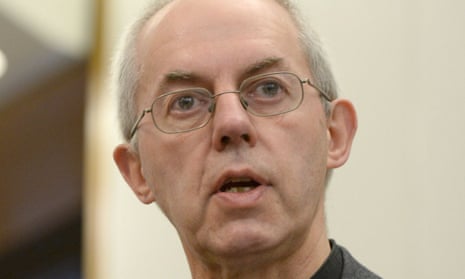The essays by the two archbishops, published provocatively just as the general election campaign gets under way, represent an attempt to claim the welfare state as a Christian creation, which Christians must defend.
The headline news is that they attack the way in which the economy is working now, producing a country in which London grows while much of the rest of England and Wales are trapped in a downward spiral, to use the archbishop of Canterbury’s term.
But beyond that, both men attack the idea that economics is or ought to be the one science which determines how we live and are governed.
They are deeply opposed to the liberal idea that economic choice is a good that should take precedence over others. If giving choices to prosperous voters diminishes the chances of the poor, then this is wrong, argues the archbishop of York, John Sentamu: “We need to recognise that injury can be caused by individuals not only doing personal physical violence to one another but also embracing choices which deprive others of the means of financial security, work, housing, education, healthcare, or dignity in old age.”
Human beings are social animals: we cannot flourish as purely selfish individuals, argues Justin Welby, the archbishop of Canterbury. “Our greatly secularised society seems to agree on only one, quite un-Christian principle: that it’s every person for themselves,” he writes. “There is a general social assumption that the economy has the power to dictate what is and is not possible for human beings. We believe that if we can fix the economy, the fixing of human beings will automatically follow. That is a lie.”
For both men, the welfare state, as it was established by the Labour government after 1945, represents a wholly Christian model of society.
Sentamu argues that the root of that welfare state was the model put forward by William Temple, then the archbishop of Canterbury, in the middle of the war, and he sees the Thatcherite and post-Thatcher assault on the welfare state as part and parcel of England’s religious turning away from Christianity.
He quotes, approvingly, the conservative judge Lord Denning, who wrote in 1952: “Although religion, law and morals can be separated, they are nevertheless still very much dependent on one another. Without religion, there can be no morality, there can be no law.”
These essays will undoubtedly be compared to Faith in the City, a church report from 1986 which attacked Thatcherism and was in turn attacked as “Marxist theology”. But there are considerable differences. In the 80s, political liberalism was also associated with theological liberalism. This is no longer true. Both Sentamu and Welby are evangelicals, and Sentamu is energetically hostile to gay clergy. Their conservatism on sexual morality is intimately connected to their distrust of an unfettered market economy.
Also, since the 80s, and especially in the past five years, the state has retreated a once unimaginable distance from the ideas of the welfare state. Food banks, a largely Christian movement, have become commonplace. The Church of England has attempted, without much success, to supply alternatives to payday loans. Faith groups have campaigned for the living wage. In some sense they are already practising what they preach.
Whether the people in the pews are onside with their clergy is quite a different question. Surveys conducted in the last few years by Linda Woodhead, of Lancaster University, have consistently shown that the laity are much less sympathetic to the poor and to welfare recipients than the clergy.

Comments (…)
Sign in or create your Guardian account to join the discussion